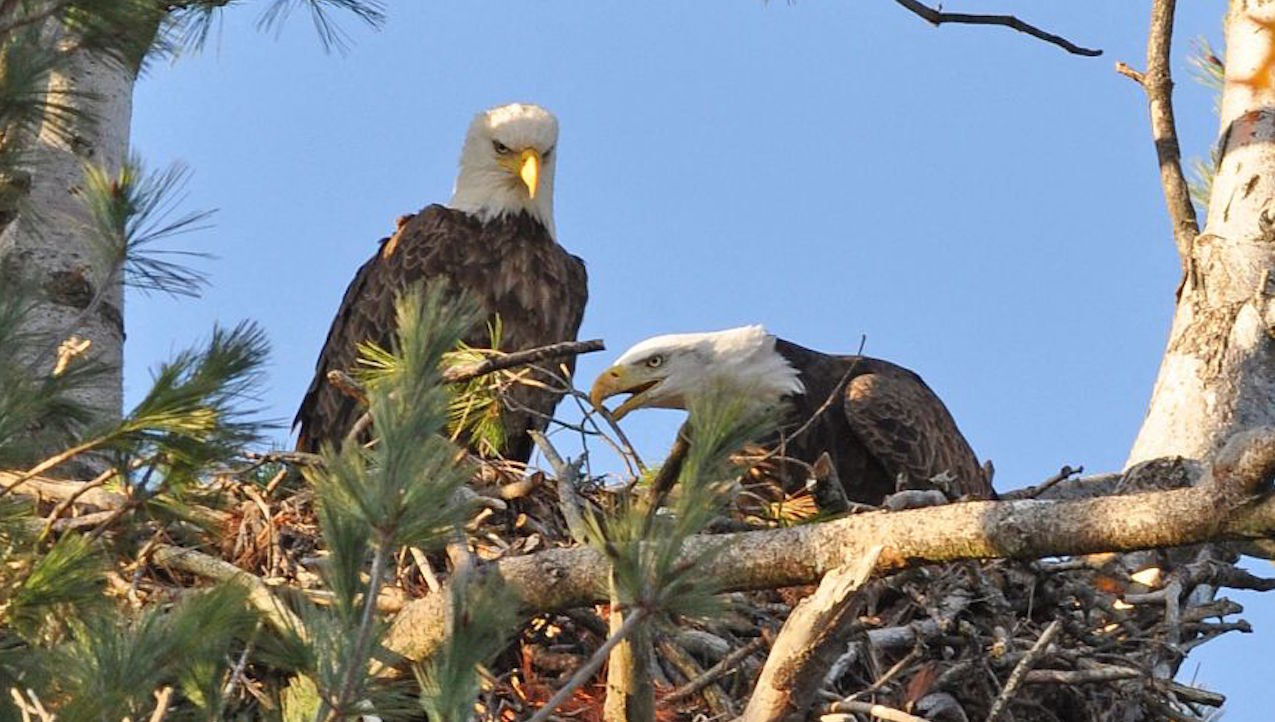KAUKAUNA — Registration for the Bald Eagle Nest Watch program at the 1000 Islands Environmental Center is now open.
If you like the idea of spending an hour each week watching and documenting a bald eagle family grow, here’s how you can participate:
Submit your volunteer application HERE.
The Wisconsin-based Bald Eagle Nest Watch program is done in partnership with Madison Audubon, Wisconsin Department of Natural Resources, 1000 Islands Environmental Center, Nature’s Guide Independent Naturalist Service, The Ridges Sanctuary, Woodland Dunes Nature Center, and Beaver Creek Reserve.
Madison Audubon began the program in 2018 in partnership with the Wisconsin Department of Natural Resources that seeks to better understand how bald eagles are doing in Dane County.
In 2021, Madison Audubon began partnering with 1000 Islands Environmental Center to host a Fox Valley program in Outagamie, Brown, and Winnebago Counties. Additionally, a dedicated group of volunteers who cover Walworth, Racine, and Kenosha Counties in Southeastern Wisconsin joined the band of nest-watchers.
NOTES AND PARTICIPANT REQUIREMENTS:

- No experience is necessary! Organizers will host a training session to teach participants about bald eagle nesting and behavior around the nest, how to document observations and use the datasheet, and safety protocols.
- All trainings are held online. Dates TBD, but will be mid to late January.
- Please note: Most bald eagle nests are quite a far afield, requiring a 20-40 minute drive from where you live. Organizers try to match volunteers with the closest bald eagle nest to their home, but it still may require a time investment to get there.
- Volunteers will need to sign a data privacy form stating they won’t share the nest location with individuals outside of the program. This is to protect the bald eagles.
- Participants should have their own transportation to the nest site as well as binoculars. A spotting scope is recommended but not required for some nests.
- Each nest will ideally have two separate individuals (either working together or separately) assigned to it each season. This is to allow for cross-checking data and ensuring the nest still gets documented if one volunteer has to miss a week.
- Volunteers should be able to commit to most or every week of the program. It is perfectly reasonable to need to miss a week or two here or there, and that’s ok! But Organizers do ask that you be able to make weekly visits for most of the season.
.
.

